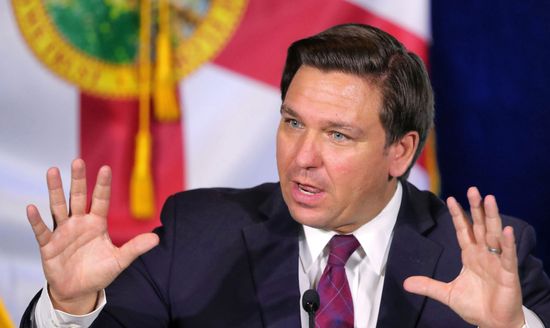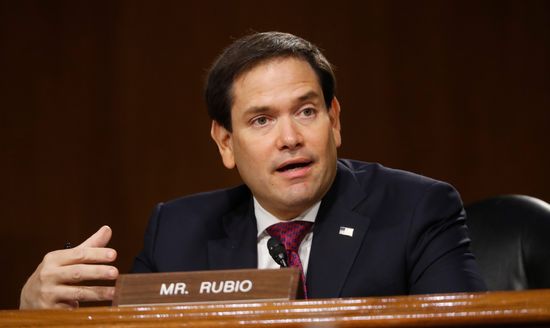| Ben: With Republicans on the verge of seating a third Supreme Court justice in three years and cementing a hard-right majority for many years to come, liberals are increasingly talking about tactics that until recently were seen as radical: namely, packing the court with additional justices if they win control of the Senate this year, adding Puerto Rico and Washington, D.C., to the union, or even starting to do away with the idea of judicial review. Democrats are hardly unified on taking any drastic steps, but if they do manage a good result in November, the pressure to do something will be intense. How do you view the balance between attempting to counter Republicans’ norm-breaking and the risk of engaging in a tit-for-tat procedural war that could lead down a dangerous path? | | Ed: I’m less concerned about the “floodgates” argument than the possibility that radical steps may not be terribly popular. Last time Democrats went down this road under FDR’s court-packing scheme, it was very unpopular in the Senate and in the country. On the other hand, the very threat did produce a change in court rulings. | | Eric: Unfortunately, I think a couple decades worth of wrong turns have brought us to a point where there is no non-dangerous path. I really think people don’t dwell enough on how close the Roberts Court came to just straight-up vetoing a landmark health-care-reform law that Democrats had been trying to pass (some version of) for decades, and which had finally made it through a legislative process with more veto points than any other major democracy’s. A 6-3 Court — with one more conservative justice equally radical on economic issues as the “moderate ” Anthony Kennedy — and millions fewer Americans would be on Medicaid today. So I think that there is great danger to democracy in acquiescing to the status quo, and that, at minimum, Democrats must strive to make fear of court packing into a constraint on the conservative majority’s ambitions. | | Ed: I would agree with that final point, with the proviso that Democrats pay a bit of attention to the polling on this. Other court-reform schemes should be floated as well. Could be a job for Pete Buttigieg. | | Eric: I’d agree that court packing is unpopular and that Biden should not campaign on it. But I also think that — given what we’ve learned about the public’s amnesia and the speed of news cycles in this era — it would be more than worthwhile to pass a bunch of unpopular reforms (that increase Democrats’ institutional power) early in Biden’s first term. I would want that to include court packing. But at the very least, Dems shouldn’t let the fact that D.C. statehood polls poorly to stay their hand. Better to notch the two senators, then defer to (largely imaginary) “Well, I would have voted for Democrats in this midterm, but 17 months ago the Senate voted to make D.C. a state, so now I’m backing Republicans” voters. | | Ed: Which will, of course, mean beginning with filibuster reform. Let’s stipulate that gaining new Senate seats by splitting up California isn’t really feasible … too many steps to accomplish it, and it’s not popular in the affected areas, really. Plus some configurations would give Republicans more new senators than Democrats, believe it or not. | | Eric: Yeah. I think we should start with statehood for all interested territories: Virgin Islands, Guam, Puerto Rico, etc. | | Eric: Unless I’m misremembering, David Shor told me that they polled Guam statehood and it was above water. | | Ed: Are you talking about consolidating territories into a new state(s), or two senators for everybody? | | Eric: A senator in every pot! Every man a senator! | | Ed: I somehow don’t think the polling on this is going to stand up over time. Shame you couldn’t combine a proposal to give Guam statehood with one to demote Wyoming back into a territory … a sort of statehood relegation system (just kidding!). | | Ben: I’ve talked to a couple of friends who have expressed concern that if Democrats win and do go down this road, Republicans will just do something even more radical when they next assume power again. What is the best-case scenario here — that Democrats adopt these reforms and just keep winning elections? Or that there’s somehow a mutual-disarmament pact down the line somewhere? | | Ed: A lot of Democrats believe that without such reforms, the minoritarian strategies of the GOP will leave them in power forever. I’m not there yet, and would want more evidence it wouldn’t backfire right off the bat, but clearly, we are dealing with a party (the GOP) that has chosen a stridently anti-democratic path. | | Eric: If we’re talking about adding states/the filibuster, the status quo is so bad, it’s hard to worry about a slippery slope. The GOP has a six-point advantage in the Senate, urban-rural polarization is a cross-border phenomenon that we can’t assume to be ephemeral. | | Ed: My minimum condition for a detente with the GOP is a Republican agreement to a national right to vote, and national standards for/financing of elections. Can you imagine how different this election year would be with those reforms? And yes, I’ve favored unilateral filibuster reform for years. | | Eric: If Dems need 60 Senate votes to legislate, they aren’t going to legislate. And we don’t have another decade to wait before passing meaningful climate legislation. On court packing, matters are more complicated. | | Eric: Dems could try to forestall a tit-for-tat escalation by doing a depoliticizing reform, such as term limits or rotating justices on and off, etc., but I doubt that will pacify the GOP. So there’s a real risk you end up in a world where the Court’s been delegitimized and red states openly nullify decisions they don’t like (and eventually, vice versa). Which I believe may be preferable to the alternative, depending on how the six-vote majority chooses to use its power. | | Ed: Again, I’d take a long look at the New Deal situation: The Lochner-era Court was more radical than anything we’re likely to see in the immediate future. It created a constitutional bar to the most minimal social and economic legislation. Democrats got around that, though not without some threats and secret deal-making. There’s no need to go so far as Ryan Cooper has proposed (and Jamelle Bouie has hinted at): the abolition of judicial review, which really means the abolition of the Constitution (including the Bill of Rights) as we have known it. | | Eric: I think going forward it’s important for Dems never to do what they did with the ACA: Pass a major new social benefit, but on a years-long time delay. Yeah, you can try to write legislation with an eye toward reconciling it with existing conservative jurisprudence. But the justices can always find a rationale. The real constraint is political. Get people the benefits immediately, and don’t give the courts an opportunity to nip your program in the bud before there are constituencies that could be mobilized against the court by such a ruling. | | Ed: I don’t think the original design of the ACA had a thing to do with the courts. It was all political. | | Eric: I didn’t say it did. I’m saying that in light of how that went down, the best way to court-proof your welfare expansion is to have it take effect before a court has a chance to weigh in. | | Ben: It’s hard to do that with environmental policy, though, which is one of the areas most threatened by a conservative court. That sort of thing by nature takes years to really sink in. | | Eric: Yeah, that’s true re: the environment. Our capacity to regulate private industry might be decimated. | | Ed: To state the very obvious, winning elections consistently is the only way to deal with any of these problems. You can’t court-proof, White House-proof, agency-proof, and Congress-proof your policies. | | Eric: But the point is the GOP has demonstrated that it is not good at retrenching the welfare state when it has to do so through the democratic branches of government. The Supreme Court, though, is not accountable to voters, and can roll things back by fiat, which is why it represents a unique threat that must be anticipated to whatever extent possible during the legislative process. | | Ed: Sure. My priority list, though, would be filibuster reform first, voting rights second, then maybe a brushback pitch at SCOTUS before we start talking Guam statehood. If, that is, I were a Democrat and not an entirely nonpartisan journalist. | | Ben: Do you actually think any of this stuff will happen, given Democrats’ inveterate reluctance to play political hardball, the likely very small majority they’ll be working with if they do manage to win one in the Senate, and the scorched-earth opposition that will await them from Republicans (as well as perhaps a skeptical media)? | | Eric: I don’t think court packing will happen. I think filibuster abolition and D.C. statehood could. | | Ed: As you know, Ben, I resist making this a matter of “attitude” or “spine.” The ACA was the mess it was because even with a 60-vote Senate, Democrats couldn’t convince everyone to go along with a public option. | | Eric: If Dems get the presidency and both houses, at a minimum, I think we’ll see extremely aggressive and precedent-defying use of reconciliation bills to allow Biden to govern. | | Ed: One would hope so. I’ll also offer the ultimate silver lining to a heavy cloud: If Trump manages to slither across the finish line into a second term, 2022 could produce the biggest midterm backlash ever, assuming we’re not all in reeducation camps learning the new MAGA anthem. | | |












